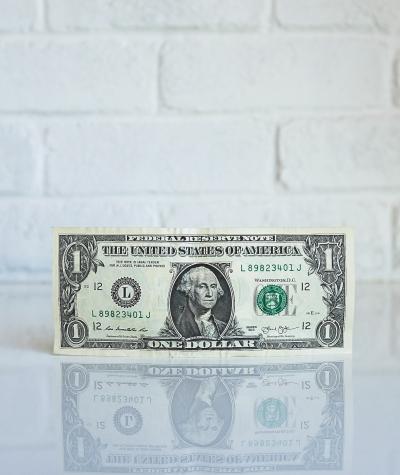As Congress holds hearings on the pro-democracy reform bill, HR 1, members of Congress are learning about public financing reforms that are new to the federal government, but have been bubbling up at the state and local level – the laboratories of democracy – for years.
Voters and legislators at the state and local level are introducing or improving on small-dollar matching and voucher programs that amplify the voices of ordinary voters and reduce the near-monopoly that wealthy interests hold on campaign donations. Supplying public funds to political candidates at the direction of voters, these reforms promote candidate engagement with voters and voter engagement in the political process.
HR 1
The House bill establishes a small-dollar matching program and a pilot voucher program for candidates for the House of Representatives. In a hearing in the Committee on the Judiciary, Adav Noti, senior director of trial litigation, CLC outlined the benefits of HR 1’s public financing provisions, which “broaden the spectrum of Americans who engage in the political process by increasing average citizen’s ability to participate in the funding of campaigns.”
Similar to New York City’s long-heralded small-dollar matching program, HR 1’s matching program provides participating candidates with a 6:1 match rate: $6 for every $1 a voter contributes to their campaign, up to $200 per individual. Candidates need to demonstrate public support to be eligible for the matching program and are subject to personal spending limits, which helps maintain the integrity of the system.
In three states to be selected by the FEC for the pilot voucher program, eligible voters can request $25 vouchers to distribute to a congressional candidate of their choice. These voters could allot the voucher as $25 to one candidate or in $5 increments to multiple qualified candidates.
Based on the Seattle Democracy Vouchers program, research by Jennifer Heerwig shows that vouchers promote electoral participation by citizens regardless of financial circumstances. This pilot program parallels proposals that voters are considering in Albuquerque, New Mexico and Austin, Texas.
New York
In New York, Governor Andrew Cuomo proposed a statewide public financing system in his 2019 budget. The proposed system matches private donations at a 6:1 rate, up to $250. The system builds on the successes of New York City’s longstanding public financing program, which provides $8 in public funds to a city campaign for every $1 a city resident contributes to that campaign, up to $175 or $250 depending on the race.
This statewide program mirrors the city’s matching program, which has helped less wealthy and more racially diverse groups contribute to campaigns and provides candidates with a greater incentive to appeal to a broader set of voters.
Small donors who gave money to a City Council candidate came from 89 percent of the city’s neighborhoods. City Council candidates received $637,000 ($2.5 million including the city’s match) from poor census block groups; in contrast, State Assembly candidates only received $87,000 from poor census block groups.
According to the Brennan Center, donors to City Council races “came from [census block groups] whose non-white population percentage (54 percent) is almost the same as the whole city’s (55 percent).”
New Mexico
In New Mexico, the legislature is considering a proposal that refines and enhances the state’s existing public finance laws, which apply to judicial candidates and Public Regulation Commission candidates, to maintain the system’s long-term viability.
The bill lengthens the amount of time a candidate has to qualify for public financing, giving candidates more time to fundraise and establish relationships with constituents. The bill also provides candidates the flexibility to choose whether to participate in public financing for the primary election, general election, or both.
Finally, the bill encourages the responsible stewardship of public dollars by prohibiting candidates from using public financing dollars on personal expenditures or paying fines for campaign finance violations.
Albuquerque, New Mexico
In Albuquerque, voters will decide whether to adopt Albuquerque Democracy Dollars, providing voters with a $25 voucher to donate to a city candidate of their choice. The program is similar to Seattle’s Democracy Voucher program, in which voters receive four $25 vouchers to donate to city candidates.
Seattle’s program led to significant increases in both the number of contributions made to city campaigns and the diversity of donors making contributions. If voters approve the Democracy Dollars program, the system would be the second of its kind, marking the expansion of this novel approach to campaign financing.
San Francisco, California
The City and County of San Francisco Ethics Commission is considering updates to their current public financing program, a matching program for candidates for Mayor and the Board of Supervisors. The program, adopted in 2000, is under review and the Ethics Commission is seeking (and has received) public input.
The Commission is seeking to limit candidate spending, decrease the time candidates spend raising money, increase opportunities for individuals to run for office, and ensure the integrity of the electoral process.
Philadelphia, Pennsylvania
In Philadelphia, the City Council began considering public financing in 2016, holding hearings to get public input on public financing for municipal campaigns. In 2017 and 2018, the council considered bills for amending the city’s charter to provide for a public financing program and establishing a small-dollar matching program.
Austin, Texas
Last year, Austin proposed establishing a Democracy Dollars voucher program in which each resident receives $25 vouchers to donate to a candidate of their choice. The program would provide voters two vouchers for each city seat up for election and operates similarly to Seattle’s program and Albuquerque’s proposal.
Conclusion
State and local reformers have been pushing for cleaner elections and stronger connections between voters and candidates through public financing programs, and that enthusiasm has pushed up into potential federal reforms.
As the proponents of HR 1’s reforms hold hearings in Congress, they have a wealth of ideas from the laboratories of democracy from which to draw.
For more on this issue, check out CLC’s public financing report here.
